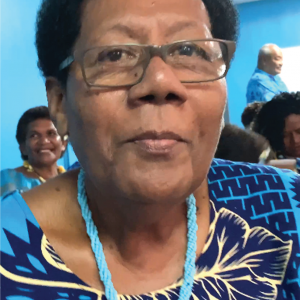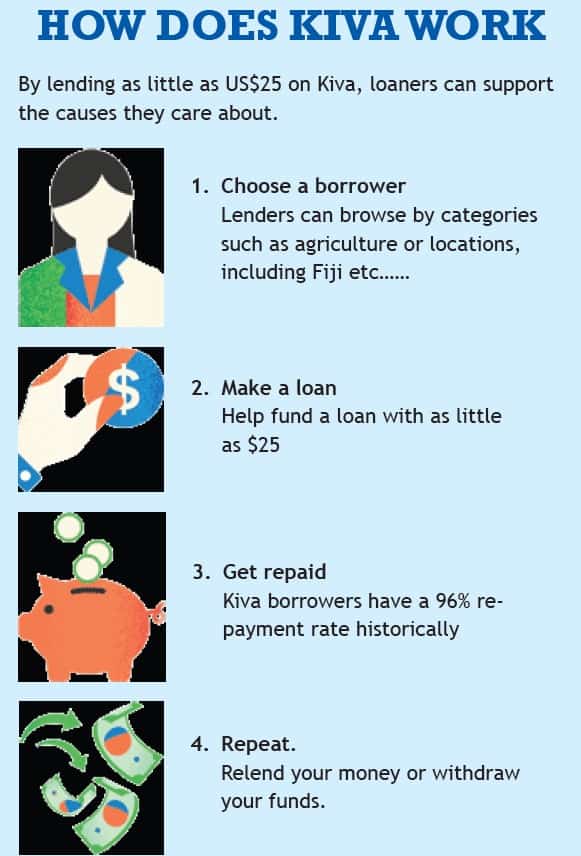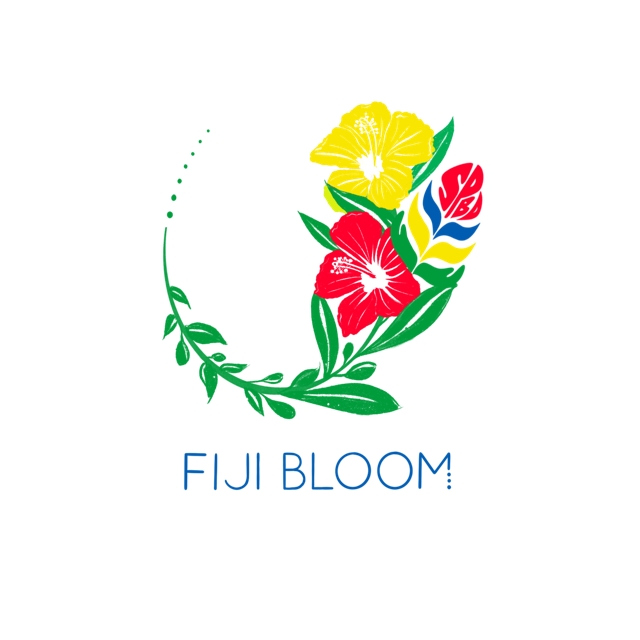Fiji’s first business accelerator program for micro-entrepreneurs successfully graduated nine businesswomen in a simple ceremony last November.
An intensive six-month program, which combines formal training sessions with onsite business coaching, South Pacific Business Development’s (SPBD) Fiji Bloom Program has three main components:
- Business Formalisation – this is intended to assist the informal business sector to become part of the formal economy by registering their businesses with the Register of Companies and Fiji Revenue & Customs Service, and by obtaining the necessary business licenses.
- Business Development Services – the micro-entrepreneurs are linked to existing reputable business development services providers and SME Preparation Workshops to help them prepare strategies for their growth.
- Business Acceleration Program – aimed at guiding the entrepreneurs to successfully face the challenges of their growing businesses.
Hours before their graduation, participants had to present and defend their growth strategies to a Panel of Judges headed by Lorraine Seeto and assisted by Api Kurusiga (Lapita Investments) and Semi Bilitaki (USP Career Centre and Services). Mereamo Lalakobatiki (Dreu na Leba Investments) of Ucunivanua Village, who operates a canteen, catering, fish trading and taxi business, was awarded the top prize.
The other graduates are Vani Vakacegu, Merewalesi Muaniwaqa, Ulamila Bera, Milika Rokomada, Susana Rolewatu, Vasemaca Aditukana, Viniana Loloyavura and Mareta Koro.
MEET THE MEMBER: MEREWALESI MUANIWAQA

“My name is Merewalesi Muaniwaqa. I’m from a village called Sote in Tailevu. I live in Caubati Stage 2. I cook for the students of Gospel Primary School; I cook their meals, their lunch, snacks during recess time. That’s the business I’m doing.
The business was doing well before COVID-19. But when COVID-19 came, business was falling as the school closed so there was not really much to do. [So] I stayed home and made lovo and posted it on Facebook then the orders came; from customers, from offices in Suva and from other residents where I live. I also deliver fried fish with tavioka.
The third one is ibe (mats), the i vivivi. I take a picture of it and post it on Facebook and I earn money. That is also a business I was able to do.
After accomplishing that, I took a loan from SPBD and bought a car. This same car is used to deliver the food that is ordered.
Fiji Bloom [SPBD’s business accelerator program] is an eye opener, for me to see, to see long term other opportunities to keep the business going.
Nowadays, I always watch shows on tv about businesses. I saw something [recently] about flowers, pot plants. I’ve learnt and know a bit about flower arrangements and I’m thinking of that, to expand my business. These are some of the things I’m doing that keeps me motivated and going.
When school resumed, sales dropped and I had to find other means to keep my business afloat. Before, the kids used to come and buy things from me directly. But now, the teachers come. They take the orders from the kids and then come to me; I give them the orders.
I don’t quit easily; I look for other things to keep me going. That’s just some of the small business I’m doing.”
API KURUSIGA: BUSINESSWOMAN AND BUSINESS MENTOR
Businesswoman Api Kurusiga is a trainer with the SPBD’s Fiji Bloom program. Kurusiga’s personal and professional journey means she is very well qualified to share her experiences with the women she is mentoring through the program.
On her childhood
“I came to this world when my father was already a businessperson. So, I used to help around but then I had to work in different capacities until I came to the Australian Trade Commission, to work there.
“My father didn’t learn this in any school. He took the risk. I come from Noco, and we have about 14 villages there. He used to buy copra from everybody. He would dry it and sell it. We sold fish, we sold eggs, we sold milk, we sold ice blocks. And we had a shop, and it was the only shop for the 14 villages in Noco when I was growing up.
“We were thrown into the business to do certain things. In the morning, we would collect eggs, we would milk cows (because we sold milk), we would bundle fish to sell. This was part of our every day before going to school. And when we came back, we would be packing things, we would be packing sugar, salt, rice, flour to sell. We would clean the shop. Those were some of the things we did before we were allowed to go out and play. We were taught how to plant our own food, you know, and that, to me, was a seed that was planted in me.”
Kurusiga spent about 28 years working for the Australian Trade Commission. What she saw there gave her confidence to start her own business, Lapita Marketing Enterprises.
“I used to read the profiles new companies in Australia that started to do business because Fiji was like a nursery market. They would come and sell here initially and then they would look at other markets. There were a number of streams that they were looking at the time. I looked after food and beverage, I looked after education, I looked after infrastructure, I looked after agribusiness.
“So one time I went to Australia [to the Fine Food show] with my husband. When we went, he was like ‘Api, I really don’t know why you haven’t started a business, you know. Look at all these people, these are little businesses. They are operating from their kitchen tables, they are operating from their little spaces at home.’ And when you hear their stories, it really tells you that you can do so much.
“When we came back in 1989 from Australia, he said ‘I’m going to start my own business.’”
That business started with a bucket of honey bought from a cousin in Kadavu. They learnt how to bottle, package and label it and then took it to market at Sukuna Park.
“When I went to sell, that really opened my eyes. I’m making money. So that was how our business started. And then I said to my husband, ‘because we are not bee keepers, we need to grow from here. We need to do other things.’”
Those other things included making virgin coconut oil. Initially they were making the oil themselves before a business mentor suggested they source the ready-made oil and bottle it. They paid a communications expert to make a website, do labels, business cards and a pull-up banner, and started to grow from there.
“Then, we had noni. So, from one product to another product then we found noni. You’ll realise that we do now, we don’t make anything. We just work with people that are already skilful and then we just bring it and make sure that the quality is good. We were trying to capitalise on my skills which was marketing. Then, we started to work with this lady who makes layalaya tonic and turmeric tonic. Then, I went to the Hart settlement in Nasole, where these ladies make soap. They do my charcoal soap, they do my noni soap, lemon grass soap, they do all sorts of things for me. So, I thought to myself, I don’t have to make anything. I just have look for the right product, label it and take it. I said to them, ‘You keep doing what you’re skilful at. You don’t have to leave your place. I’ll just come to your place, I’ll buy what you have, I’ll bring it home. You just keep doing what you’re doing. I’m trying to teach them at the same time, these people that supply me, to diversify into other things.'”
Lapita Marketing Enterprises now supplies supermarkets and pharmacies in Fiji, a Korean exporter and a locally based company that exports to New Zealand. Those exporters take care of all biosecurity and export requirements. Kurusiga started the business when she was 50.
“This is why I really admire these ladies who are in SPBD. I really admire them for their courage.
“I’m part of WEBC (the Women Entrepreneurs Business Council), and the opportunity came from SPBD to WEBC because WEBC is sort of formalised business and SPBD is informal—to make sure these women [move] up, to make sure they are formalised, they are registered, they have a bank account, they have a TIN. That is where I come in and coach these ladies.
“I tell you something, I really, really enjoyed it. I enjoyed it because I can see that they are, you know, these women, some of them probably went as far as Class 8 or Form 3, but I tell you, they push. They are skilful at doing what they are doing. Sometimes, they learn from other ladies that are there, even the ones that are selling in the market, you know, the flea market, the market in Suva, the market in Nausori. They just go and see and said “Ok, I can do something like that.” They go and ask for a space and they start doing something. And from there, they grow. Once you expose them, they start to grow, and they do better.
“I can say, working with Austrade really taught me to work with women to take them to the next level. My first question to them is, “Why are you pricing at this? Can you tell me why you are pricing this salusalu for $35?” They don’t know. I taught them that to grow a business, you have to reduce your expenses.
“[On] my first visit to my mentees, I went to sit with their family. I met the mentee to understand that their planning for business was not just them. It’s them and their family. The family plays a very important role in them making sure their business runs, because first of all, they’re women, they are expected to make sure that the clothes are clean, the house is clean, the food’s done? But then the family needs to understand that she’s doing this for the family so they are needed here.
API KURUSIGA’S TIPS FOR BUSINESS SUCCESS
- Reduce your expenses as much as you can: use the flowers and vegetables you grow from home, pack your own lunch and drinks when you go to the market.
- Value and price your work realistically.
- Know what sells and concentrate on that.
- Understand your competition, see what they are doing, and work together where you can.
- Create your point of difference, understand what makes your product unique or special.
- Pay attention to the details: how you display your products, cleanliness.
- Understand how you use your time (and record it).
- Record every transaction, so you can understand your profit and loss and how you can grow. Receipt everything.
- Look after your health: eat properly, get exercise and value your own worth.

MEET THE MEMBER: MEREAMO LALAKOBATIKI

“My name is Mereamo and I’m from Ucunivanua, Verata, Tailevu. I sell cooked seafood, because I live on the beach, my house is on the beach.
“I started my business in 2012; I joined SPBD. My initial plan was to sell and help my relatives. In 2012, SPBD helped by giving me loans that made it possible to buy my cooking utensils. In 2017, I took another loan which was the SME loan. I took $7000. I tried running a car business. I have a car at Tiko Kece [taxi] base. This is the third year I’ve been running it [and] this year, in July, I paid it off. The weekly income I get from my driver is $360. Since the pandemic, and after paying off the car, [it has] dropped to $300.
“When I come to Suva, I sell in Suva market, every Friday and Saturday. I have a table. I sell my seafood packs there, outside, near the kai section. When I finally owned a vehicle, I was really happy because I didn’t have to worry about my transport home. Now, it’s easy for me, when I come, I bring the hot food. When I reach the market, people are already going around looking for me because it’s hot and fresh.
“[I also sell] at the USP [University of the South Pacific] market day. It’s been 8 years now and it will start again in Feb (2021). On civil servant pay days I go sell my fresh fish to them, and also my fish packs. I do catering for them too especially for the Ministry of Health, for their workshops and meetings.”
What have you learnt through the Fiji Bloom program?
“A lot of things, to do my recordings and everything. I have to do my cashflow, how to measure my profit and loss, all these things that helped me a lot to move forward and better my business.
“[In 2021] I’m looking to open my bread shop in the village. I know how to make bread. For us, if you want to buy bread, you either go to Korovou or Nausori or Suva. I see that good profit can be made from selling bread.
“My family is supporting me. [My daughter] needs to drive the car when we go around to sell. And my husband, he helps a lot. When we do the cooking, he looks after the root crops. He does his job, I do my job, and do the packing.
“I’m happy about my sales and I see the difference post COVID-19. I saw how we transacted, and whatever I had learned, I try to act on it. For instance, I wear the cap and gloves in the market. I want to show the women I sell with that people will come for your goods if they see that it’s presented hygienically. That’s important. Secondly, the portion of what you sell, should meet the cost. These days, earning money is a challenge. Many of the customers see what I do, and they come to me because they see it’s worth it.
“For my children, I told them to follow me, follow what I’m doing. They see what I’m doing and how good it is. One of them is in Tonga; she’s doing her business now in Tonga. This is what I taught them. I told them about SPBD, and how they can be their own boss. I see that it’s good and when I’m gone, they will follow in my footsteps.”

CROWD-FUNDING AS POTENT DEVELOPMENT: FINANCING-THE KIVA MODEL
South Pacific Business Development is part of a global movement as a field partner for Kiva, and international nonprofit organisation based in the United States, with a mission to expand financial access to help underserved communities thrive.
Kiva crowdfunds loans and unlocks capital, addressing the underlying barriers to financial access in the Pacific and around the world. Lenders, individuals like you and I, simply visit the website and look for opportunities to lend to women and men. These opportunities can be sorted by location or by sector, for example agriculture or retail.
Significant funds are mobilised into the region through Kiva crowd-funding, 97% of which are invested through the SPBD network in Fiji, Samoa, Solomon Islands, Tonga and Vanuatu.
They include Ana in Vusasivo, who was able to borrow $500 to buy equipment for the harvesting, processing and transporting of kava, and Sangita, who used her $2025 loan to renew her taxi permit and buy spare parts. Lenders come from all over the world, including Fiji.
In his letter to investors at the end of last year, Kiva CEO Neville Crawley said: “We went into 2020 with a great plan—the chessboard was laid out, and we knew our next 30 moves. Then COVID-19 hit, and every piece on the chessboard moved. With your unwavering support, we were able to pivot our plans to make a difference in this new reality.”
This pivot included ramping up the US lending program which saw loans to small American businesses grow by 80% last year, and growing Kiva’s platform for institutional investors with over US$25 million secured.
Kiva also launched a COVID-19 Response Fund to support borrowers worldwide. More than 480,010 people lent US$115,701,500 to 265,660 borrowers through the fund and $7.7m was provided to field partners in crisis support loans.
The beneficiaries were entrepreneurs from all over the world, women like Elenani, who has turned her love of traditional crafts into a business. She sells the baskets she makes in the market and, if demand is strong, can earn $35 a day. Elenani has created beautiful accessories such as necklaces, earrings and bracelets since 2017. A loan of $1175 backed by 20 individuals has enabled her to add more tools and jewels to her inventory. As a mother of five, her dream is to buy a house for the family.
Elenani’s loan has also meant she can expand her traditional dress business, to earn more income and fulfill her dreams. Meanwhile in Samoa, 45 year-old Taape owns and operates a shop in her village, selling a variety of items. She has been doing this for six years.
Taape received a $4175 loan powered by 59 lenders to buy a new display refrigerator, a chest freezer, snacks, frozen goods, canned food, bags of rice, sugar, and salt. She hopes to use her profits to pay for her family’s weekly expenses.
She became a member of South Pacific Business Development (SPBD) in 2008 to gain access to capital for her business.
There are currently 95 opportunities for Kiva lenders to support Fijian women on the organisation’s website www.kiva.org.


One Comment “WHO: Pacific islands facing a bumpy road toward the ‘Healthy Islands’ vision”
Comments are closed.